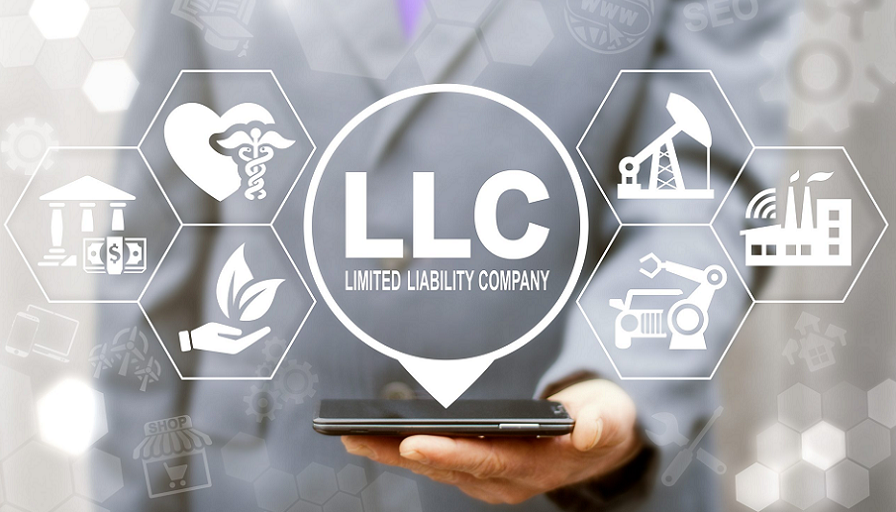
Starting a business is an exciting journey, filled with big decisions and potential opportunities. One of the critical choices you’ll make is deciding what type of legal structure your business will have. One popular option is the Limited Liability Corporation, commonly referred to as an LLC. Here we walk through what an LLC is, how it works, and why it’s a favored choice among business owners.
Contents
Understanding the Basics of an LLC
Before diving into how LLCs work, it’s important to grasp what an LLC actually is. An LLC stands for Limited Liability Company. It is a type of business structure that combines some of the best attributes of corporations and partnerships.
The Concept of Limited Liability
The term “limited liability” is central to understanding an LLC. In simple terms, it means that the business owners are not personally responsible for the company’s debts or liabilities. This provides a safety net, as personal assets like your house or car are typically protected if the business encounters financial difficulties.
Blending Corporation and Partnership Features
When you establish an LLC, you get some benefits of both corporations and partnerships. Like corporations, LLCs provide limited liability protection. However, unlike corporations, LLCs are usually easier to manage and don’t require as much paperwork. On the other hand, similar to partnerships, LLCs offer flexibility in management and profit distribution among owners, but without the personal liability.
How an LLC Works
Now that you understand what an LLC is, let’s explore how it operates on a day-to-day basis. An LLC can have one owner or multiple owners, who are known as members.
Creating an LLC
Forming an LLC involves several key steps:
- Choosing a Name: Every LLC needs a unique name that complies with state regulations. Usually, this means including “LLC” in the business name.
- Filing Articles of Organization: This essential document is filed with the state. It includes basic information like the LLC’s name, address, and the names of its members.
- Creating an Operating Agreement: Though not always required, this internal document outlines how the LLC will be managed and how decisions will be made.
- Obtaining Necessary Licenses and Permits: Depending on your industry and location, your LLC might need specific licenses to operate legally.
LLC Management
There are generally two ways an LLC can be managed: Member-managed or Manager-managed.
- Member-managed: In this structure, all members are involved in the day-to-day operations and decision-making processes of the LLC. This setup is common for smaller LLCs where each member wants to have a say in the business direction.
- Manager-managed: Members choose one or more managers to handle the business operations. This approach can be beneficial for larger LLCs or when members prefer to be passive investors.
Taxes and Profits
Another significant aspect of how an LLC operates is its tax treatment:
- Pass-through Taxation: By default, LLCs benefit from pass-through taxation. This means the business itself doesn’t pay taxes on profits. Instead, profits “pass-through” to members, who report them on their personal tax returns.
- Flexibility in Tax Classification: An LLC can choose to be taxed as a corporation if that status is more beneficial, providing flexibility that many business owners appreciate.
Advantages of Forming an LLC
So, why do so many entrepreneurs opt for an LLC? Here are some reasons:
Personal Asset Protection
One of the biggest draws of an LLC is the personal asset protection it provides to its members. Your personal wealth is shielded from business-related debts and legal actions, offering peace of mind.
Simplicity and Flexibility
Compared to corporations, LLCs require less paperwork and formalities, such as annual meetings or detailed record-keeping. Plus, there’s freedom in deciding how profits are divided among members, providing more control over your business operations.
Tax Benefits
As mentioned earlier, the option of pass-through taxation can mean no double taxation on business income, which can be an advantage for many small businesses. Plus, the ability to choose how you are taxed adds another layer of financial strategy.
Potential Drawbacks to Consider
While LLCs have many advantages, it’s also important to consider some potential drawbacks:
Cost
Setting up an LLC can be more expensive than a sole proprietorship or partnership due to filing fees and ongoing state fees. It’s essential to consider these costs in your business planning.
State-specific Rules
Different states have different rules for LLCs, which can make things complicated if you plan to operate in multiple states. It might require additional paperwork and fees, so it’s a good idea to understand what your state requires.
Limited Life
In some states, if a member leaves the LLC, it could mean the business needs to be dissolved and reformed. Although operating agreements can be written to address this issue, it’s a factor to consider when structuring your LLC.
Is an LLC Right for You?
Deciding if an LLC is the right choice for your business involves weighing the pros and cons. Considering your business goals, financial situation, and personal liability tolerance will help guide you in this decision-making process.
Ultimately, an LLC offers a balance of protection, operational simplicity, and tax flexibility that many find appealing. Whether you’re just starting out or looking to formalize your existing business, knowing how an LLC works can ensure you’re making an informed choice that supports your business aspirations.

